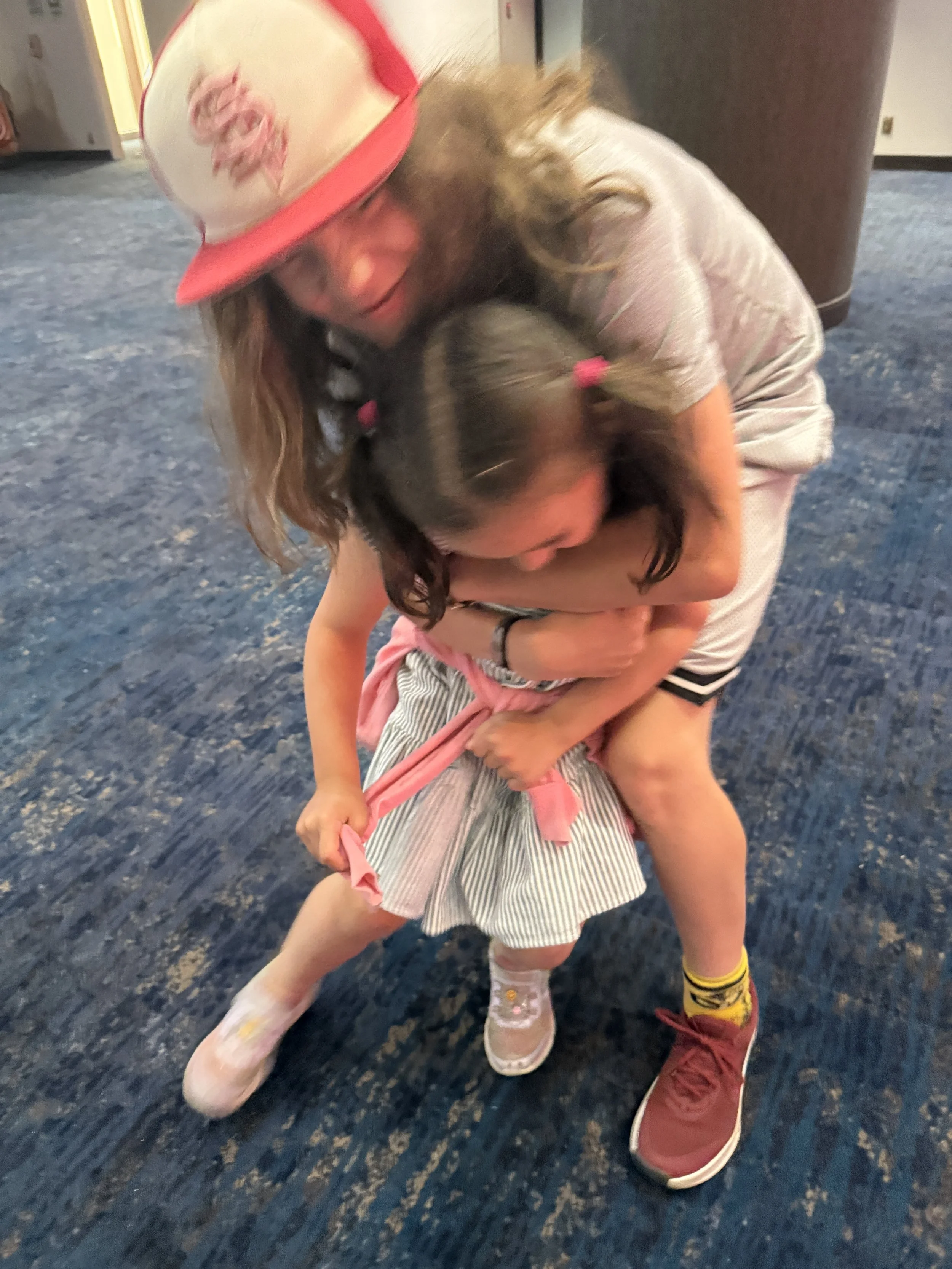Griefbots & Santa Claus
A few days ago, Anessa asked me if she could stop going to summer camp. When I asked her why, she wasn’t able to articulate, (or didn’t want to tell me) her reasoning. From the pictures I see online each day it looks like she’s having a blast. What could be the problem?
That night, after I had tucked Anessa into bed, I walked back into her room to lay some clean clothes on her dresser. Anessa lifted her head up from her pillow and looked at me.
“Mommy?”
“Yeah, honey?” I answered.
“I was just talking to Santa and asked him to help me with camp.”
“Oh. Ok. Well, I’m glad you’re asking for help. Do you think you could tell me what you told Santa so maybe I can help to?”
Turns out she just doesn’t like riding the bus. None of her camp friends are on the same bus as her and she was having a hard time finding someone she knew or liked to sit next to. I asked Anessa if it would it be ok if her Daddy or I talked to the bus counselors the next morning and asked them to help. She agreed.
I was relieved to get to the bottom of the issue and learn there was nothing more nefarious going on. But also, I was struck that Anessa had essentially been praying… to Santa. For context, we do not attend church. Outside of what she might hear from friends or see on TV she has not been formally introduced to a specific god or been taught to pray. Last Christmas I told her the story of Jesus’ birth using the nativity scene that I put out each year. When I caught her playing with the figurines later she was calling Baby Jesus, Baby Cheez-its.
Yet still, in her moment of desperation she was compelled to reach out to the closest thing she had to an omniscient deity: Santa Claus. Some would say that this is a sign that we all feel a connection to some higher power. Others will see this as a standard human reaction particularly during moments of desperation.
The entire interaction was fascinating to me, especially how Anessa found it easier to share her concerns with me once she had verbalized them to Santa. Who knew it would be griefbots that would bring my thoughts on this full circle. I had heard of A.I. griefbots peripherally but dove in when a friend sent me an article from the NY Times about the role griefbots are playing in the evolution of communication attempts with the dead.
This particular A.I. is programmed using audio recordings of a deceased loved one matching tone, pitch and other various vocal patterns. Then a user can program the griefbot to say whatever they would like it to. From reciting the Night Before Christmas to sending happy birthday wishes.
When it comes to grief, I try not to judge. My own grief journey has been jagged and unpredictable. When my daughter, Adelaide, died, I found myself reaching for fragments—I scrolled through pictures, watched videos, and listened to an audio recording of her oxygen concentrator on a loop (grief is weird). I understand the impulse to hold on, to preserve what remains. In that sense, griefbots seem almost like wish fulfillment: the ability to speak with the departed, to receive one last “I love you” when the world feels impossibly silent.
But the reality is more nuanced. Can an algorithm really capture the spirit of a person, or is it simply reflecting our longing back at us? Is this a tool for comfort, or a trap that keeps us tethered to the past when healing requires forward movement?
We know that grief is not linear; it is a winding road littered with detours and switchbacks. I believe there is value in learning to live with absence, in coming to terms with the shape of loss as it settles within you. If a griefbot continually offers us the illusion of life, do we risk stalling the acceptance that healing requires?
The writer opines that humans have been trying to communicate with the dead for most of our history and after mediums and Ouija boards, AI is just the latest attempt. By putting artificial intelligence in with this group though, the writer then insinuates that all other forms of divination are also artificial. And while I’m pretty sure Parker Brothers isn’t mass producing actual spirit communication devices, thirteen-year-old Kelly would like to have a word.
Is this another example of humans knowing there is something bigger in the universe? Or is this simply another universally human coping mechanism?
At the end of the day, I’m not sure the answer actually matters.
If prayer, meditation, or talking with your dead dad helps you to better articulate something that has been upsetting you,
If it makes you feel better,
If it isn’t holding back healing,
And (this one is incredibly important) it doesn’t harm anyone else else,
Then who cares? Go with God, your griefbot or Santa Claus.
And not for nothing, in Anessa’s case it worked. The next day when she got on the bus the counselors helped her find a seat next to a new friend (thanks to Miguel talking to the counselors of course. But that wouldn’t have happened if she hadn’t told me about her prayer to Santa). Now my little night owls only complaint is that camp starts too early in the morning. Unfortunately, I don’t think Santa can help her with that one.
ID: Anessa standing on top of a large pile of white rocks. She is wearing a purple skirt adn tank top with her arms outstretched. Behind her is a white fence, tree line and evening sky.



